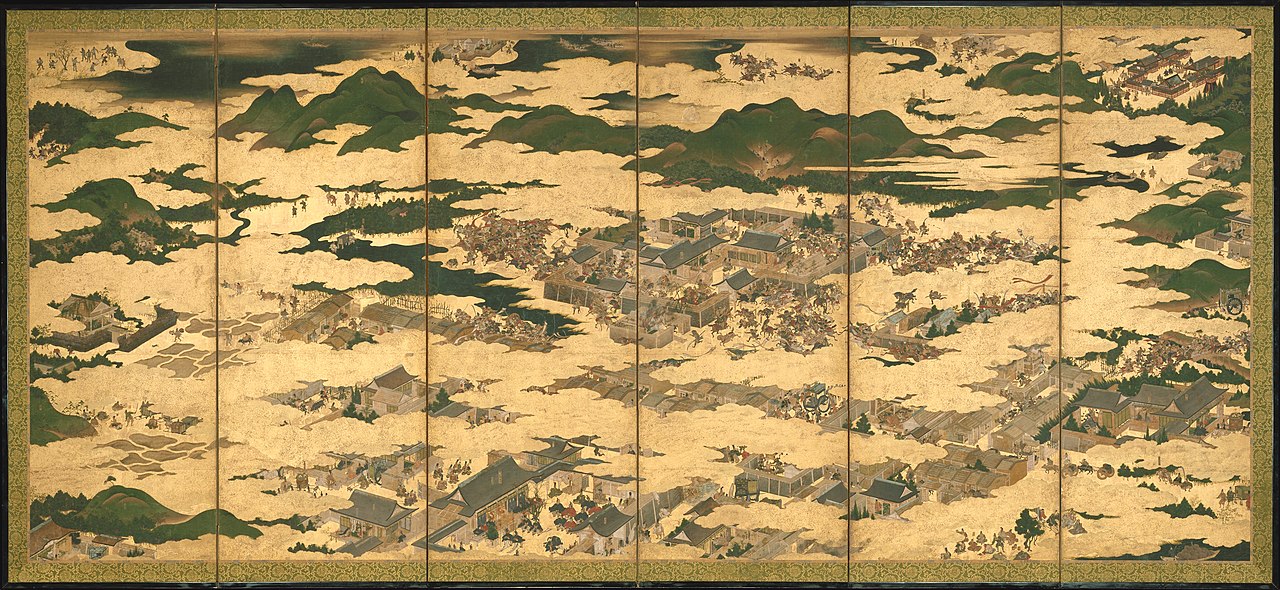A Basic Matter of Japan
In 1156 in Kyoto, Japan, strife erupted between an incumbent emperor and a retired emperor.
The cause of the strife was the decision on succession of the imperial throne by the former retired emperor who was the father of the emperor and the retired emperor. The former retired emperor Toba (1103-1156) held the political power in the imperial court and appointed his sons to the imperial throne one after another. But when Toba died, his two sons, namely the retired emperor Sutoku and the incumbent emperor Go-Shirakawa started to clash over hegemony.
In those days, an emperor sometimes retired while he was still young, and his young son succeeded his father. But the retired emperor kept the political power in the imperial court. And there were cases that a retired emperor retired to be an ex-retired emperor so as to make his grandson get enthroned and accordingly make his son get retired to be a retired emperor. Toba had such a grandfather. And when the grandfather, Shirakawa, died after his father Emperor Horikawa had died, Toba himself started cloister government, manipulating his sons.
But when Toba died, his son, the retired emperor Sutoku, could not launch his cloister government, since the incumbent emperor, Go-Shirakawa, was his younger brother but not his son. However Sutoku wanted to exercise his power while Go-Shirakawa stuck to his own imperial power. Each of them had support from noblemen and samurais on his side. And, this strife was put to an end through violent clash of samurais on both the sides. Noblemen could not fix the case in a political or peaceful manner.
So, after the strife that ended with Go-Shirakawa's victory, samurais who helped the emperor came to take a decisive part in politics around the imperial court. It eventually caused a power shift from the emperor and the noble class to samurais specialized in military force. Till this incident of 1156, called the Heiji War, samurais were used by the imperial court as the Guards of the imperial court in Kyoto or by noblemen as a garrison or police force in their feuds located locally, though some samurai leaders were given lower grades of titles of the noble class. But the Heiji War set samurais as a class of people who could be in charge of politics and administration.
After subsequent decades of strife within the samurai class or specifically among the two major samurai clans, the Heike clan and the Genji clan, finally the Genji clan got hegemony and took over power from the imperial court in Kyoto, and the head of the clan, Minamoto-no-Yoritomo, established, as the head of all the samurais, the first samurai government in Kamukura, a town facing the Pacific Ocean 400 km east of Kyoto, in 1192. Basically, the rule by samurais continued till 1868 when the imperial court regained power through the incident called the Meiji Restoration, though different samurai clans took the position of the head of all the samurai clans in the 700-year-long samurai rule.
So, the corrupt imperial court gave way to samurai government in the 12th century, though at the time each emperor, retired emperor, or ex-retired emperor could not exercise his power despotically since noblemen had already taken real political power from successive emperors for centuries.
But the core of the mind set of the samurais is loyalty to their masters and faith in power of sword. It had a great influence on the Japanese society even after the Meiji Restoration when Japan started modernization, Westernization, and industrialization. And, there is still some remnant of this samurai tradition after the end of WWII.
Today, the Japanese Constitution does not recognize the imperial court and the noble class, needless to say the samurai class, but recognize people as the sole sovereign of Japan. However, the emperor is positioned by the Constitution as the symbol of the nation.
This is a basic matter of Japan.

Hogen War
https://en.wikipedia.org/wiki/H%C5%8Dgen_Rebellion
Hogen War
http://indoor-mama.cocolog-nifty.com/turedure/2016/07/711-4adf.html
**** **** ****
Joh 10:24 Then came the Jews round about him, and said unto him, How long dost thou make us to doubt? If thou be the Christ, tell us plainly.
Joh 10:25 Jesus answered them, I told you, and ye believed not: the works that I do in my Father's name, they bear witness of me.
